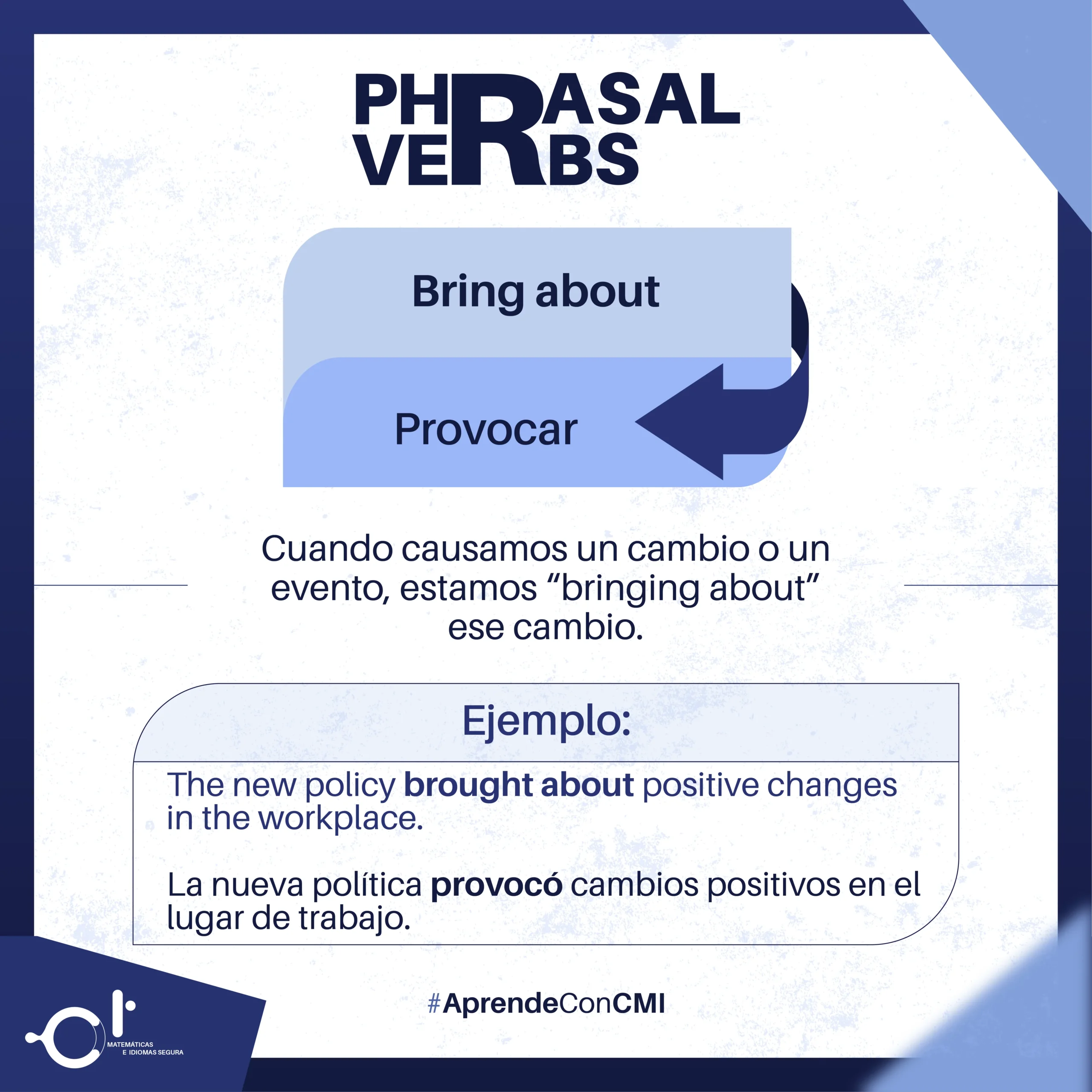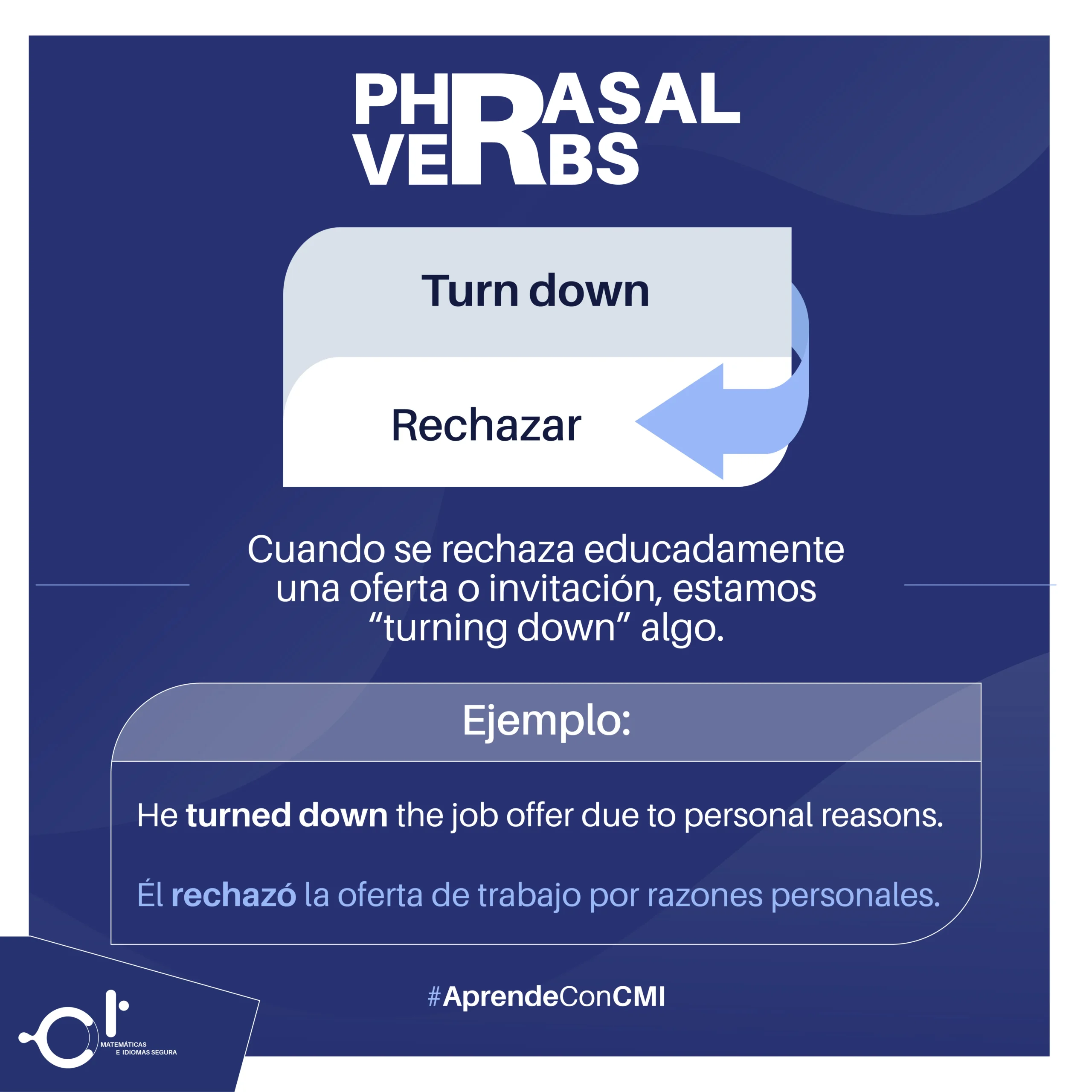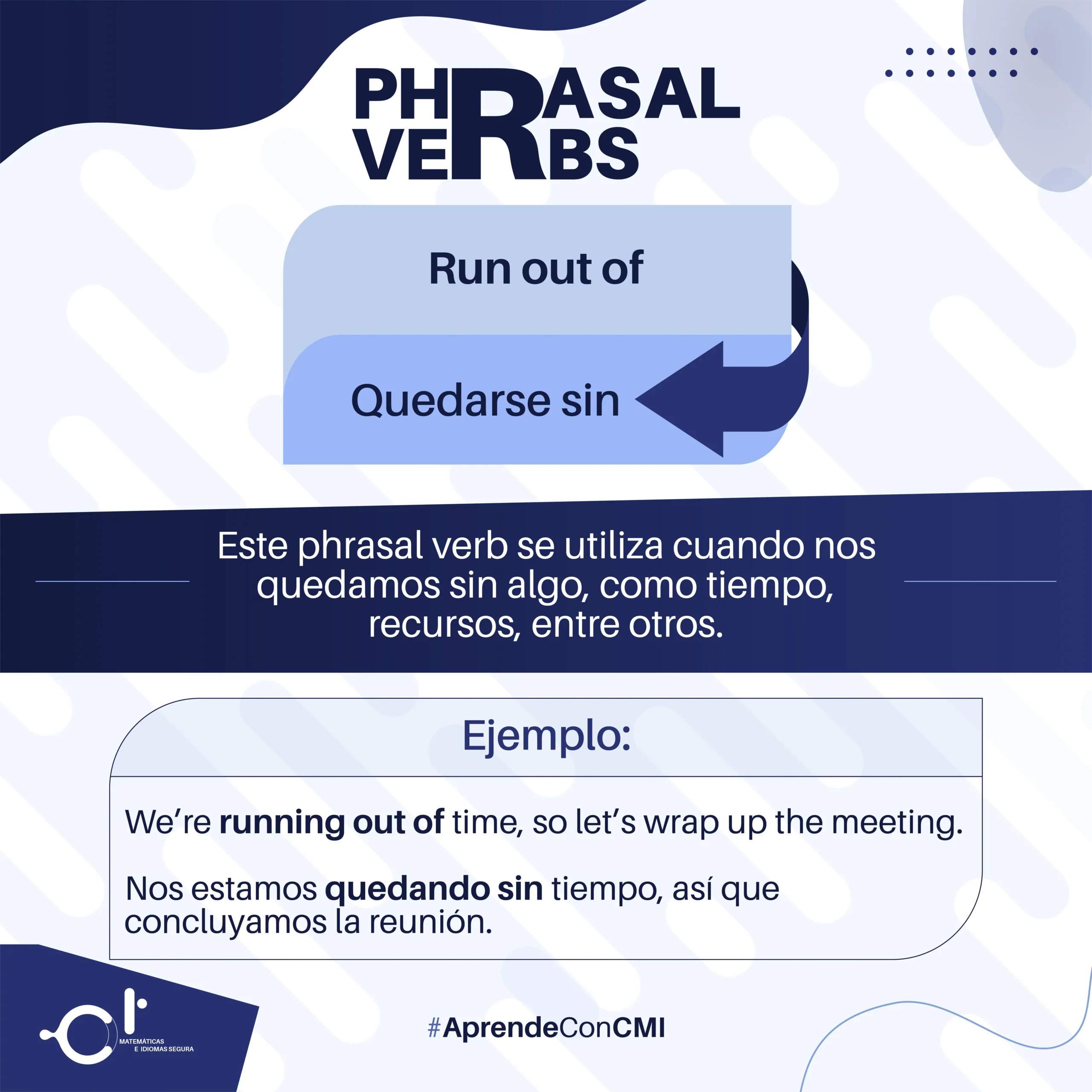¿Qué son los Phrasal Verbs?
Un Phrasal Verb es una combinación de un verbo y una partícula (una preposición o un adverbio, o a veces ambos), que juntos crean una nueva unidad de significado. El significado del phrasal verb rara vez se puede deducir de las palabras individuales.
Ejemplos:
look(ver) +up(arriba) =look up(buscar información en un diccionario/internet)give(dar) +up(arriba) =give up(rendirse, dejar de hacer algo)Como puedes ver, “look up” no significa “ver hacia arriba” cuando buscas una palabra. Este es el principal reto y la clave para entenderlos: trátalos como si fueran una sola palabra con un significado único.
Tipos de Phrasal Verbs
Los phrasal verbs se pueden clasificar principalmente en dos categorías:
1. Phrasal Verbs Transitivos e Intransitivos
- Transitivos: Requieren un objeto.
- “I picked up the book.” (Necesita un objeto: “the book”)
- Intransitivos: No requieren un objeto.
- “The plane took off.” (No necesita objeto después)
2. Phrasal Verbs Separables e Inseparables
Esta es una distinción crucial que afecta el orden de las palabras.
a) Separables: El objeto puede ir entre el verbo y la partícula, O después de la partícula.
- Si el objeto es un sustantivo, puede ir en ambas posiciones:
- “I turned on the TV.” (Encendí la televisión.)
- “I turned the TV on.” (Encendí la televisión.)
- Si el objeto es un pronombre (it, them, him, her, us, you), DEBE ir entre el verbo y la partícula.
- “I turned it on.” (Lo encendí.)
- (INCORRECTO: “I turned on it.”)
Ejemplos de Separables:
- turn on (encender) →
turn something on/turn on something - pick up (recoger) →
pick something up/pick up something - give back (devolver) →
give something back/give back something - put on (ponerse ropa) →
put something on/put on something - call off (cancelar) →
call something off/call off something
b) Inseparables: El objeto SIEMPRE va DESPUÉS de la partícula. Nunca se puede separar el verbo de la partícula.
Ejemplos de Inseparables:- *look after* (cuidar de) → `look after someone/something`
- "I *look after* my sister." (NO: "I look my sister after.")- *get on with* (llevarse bien con) → `get on with someone`
- "Do you *get on with* your colleagues?"- *run into* (encontrarse con alguien por casualidad) → `run into someone`
- "I *ran into* an old friend yesterday."- *come across* (encontrar algo por casualidad) → `come across something`
- "I *came across* an old photo."- *look for* (buscar) → `look for something`
- "Are you *looking for* your keys?"
¿Cómo saber si es separable o inseparable? Lamentablemente, no hay una regla fácil. A menudo, la única forma es memorizarlos o consultarlos en un diccionario. Los diccionarios suelen indicar si un phrasal verb es separable (e.g., turn sth on) o inseparable (e.g., look after sth).

Phrasal Verbs Comunes y Sus Significados
Aquí hay una lista de algunos phrasal verbs muy comunes que deberías empezar a reconocer y usar:
| Phrasal Verb | Significado | Ejemplo |
| break down | 1. Estropearse (máquina) |
My car broke down on the way to work.
|
| 2. Perder el control emocional |
She broke down when she heard the news.
|
|
| call off | Cancelar |
They called off the meeting.
|
| come across | Encontrar/toparse con algo/alguien por casualidad |
I came across some old photos in the attic.
|
| get along / get on | Llevarse bien con alguien |
Do you get along with your siblings?
|
| give up | Rendirse, dejar de hacer algo |
Don’t give up! You can do it!
|
| Dejar de fumar/beber, etc. |
He gave up smoking last year.
|
|
| look for | Buscar | I’m looking for my keys. |
| look up | Buscar información (diccionario/internet) |
I looked up the word in the dictionary.
|
| make up | 1. Inventar una historia |
He made up an excuse for being late.
|
| 2. Reconciliarse |
They argued but then made up.
|
|
| pick up | Recoger algo/alguien |
Can you pick up the kids from school?
|
| put off | Posponer, aplazar |
Don’t put off your homework until the last minute.
|
| put on | Ponerse (ropa, maquillaje) | It’s cold; put on your coat. |
| take off | 1. Despegar (avión) |
The plane took off at 8 AM.
|
| 2. Quitarse (ropa) | He took off his shoes. | |
| turn down | 1. Rechazar (oferta/invitación) |
She turned down the job offer.
|
| 2. Bajar el volumen |
Can you turn down the music?
|
|
| turn up | 1. Aparecer (llegar inesperadamente) |
He turned up late for the meeting.
|
| 2. Subir el volumen |
Please turn up the volume; I can’t hear.
|

Consejos para Aprender Phrasal Verbs
- No los traduzcas literalmente: Entiende el significado del conjunto.
- Aprende en contexto: Es más fácil recordar un phrasal verb en una oración que de forma aislada.
- Agrupa por verbo: Aprende todos los phrasal verbs que usan “get” (get up, get on, get by, get over, etc.)
- Agrupa por partícula: Aprende phrasal verbs con la misma partícula (turn on, put on, come on).
- Usa un diccionario de phrasal verbs: Hay diccionarios especializados que te dan ejemplos y te indican si son separables o inseparables.
- Práctica constante: Úsalos en tus conversaciones y escritos. Lee y escucha inglés para verlos en acción.
Ejercicios para Practicar
- Completa las oraciones con el phrasal verb adecuado de la lista (break down, call off, give up, look for, pick up, put on, take off):
- Don’t ____! You’re almost there!
- I need to ____ my shoes when I enter the house.
- They had to ____ the concert due to the storm.
- My old computer always ____ when I try to run a big program.
- Can you ____ me ____ from the airport tomorrow? (¡Cuidado con la separación!)
- Reescribe las oraciones usando el pronombre en el lugar correcto (si el phrasal verb es separable):
- I turned on the light. → I ____.
- She gave back the book. → She ____.
- He looked up the word. → He ____.
- They look after their children. (¡Cuidado! ¿Separable o inseparable?)
- Elige el phrasal verb que mejor encaja en la oración:
- If you don’t know the meaning, you should (look it up / look up it).
- I’m trying to (get along with / get along my boss with) my new boss.
- She decided to (turn down / turn down the offer) the job offer.
- Completa las oraciones con el phrasal verb adecuado de la lista (break down, call off, give up, look for, pick up, put on, take off):

